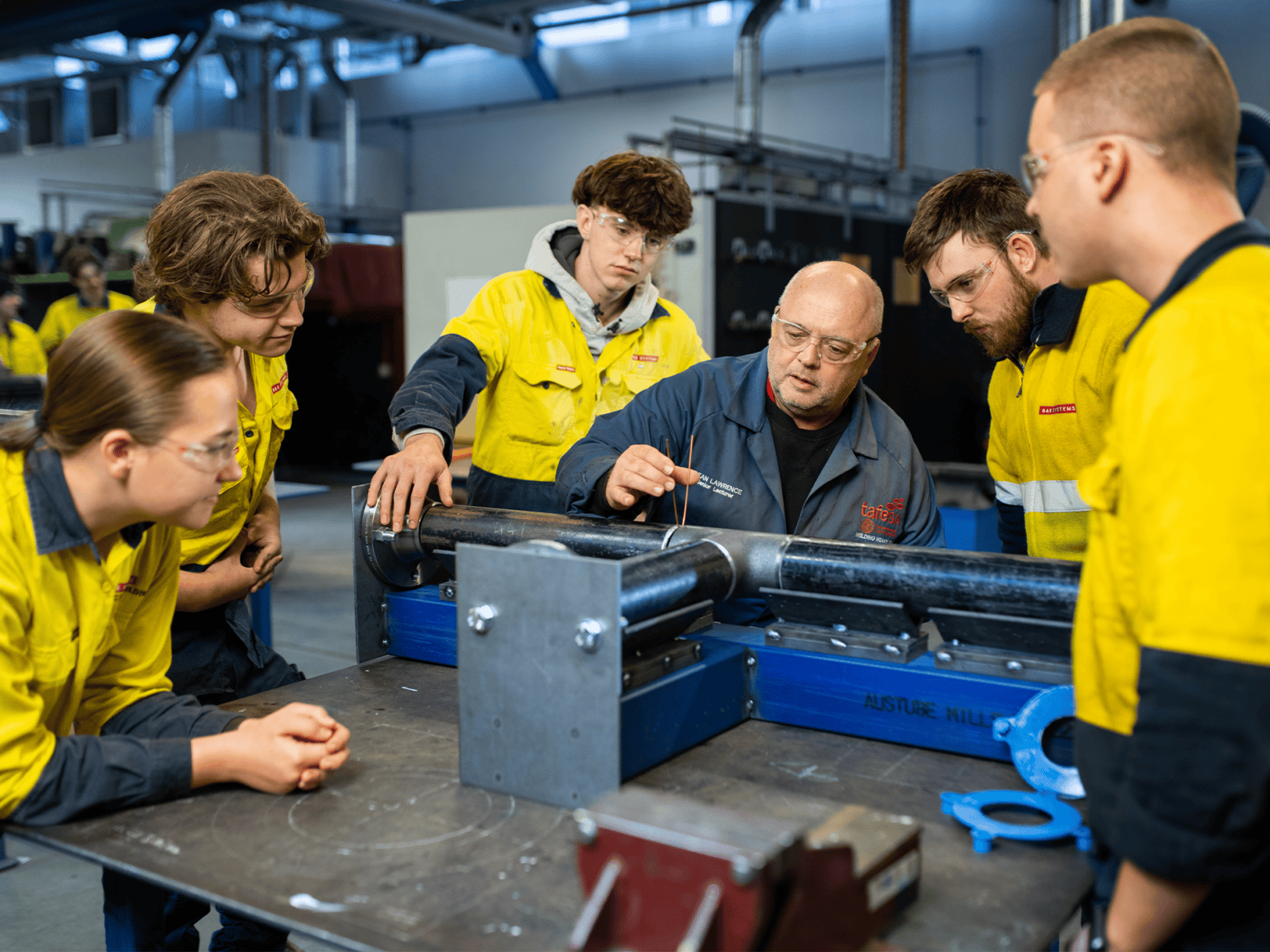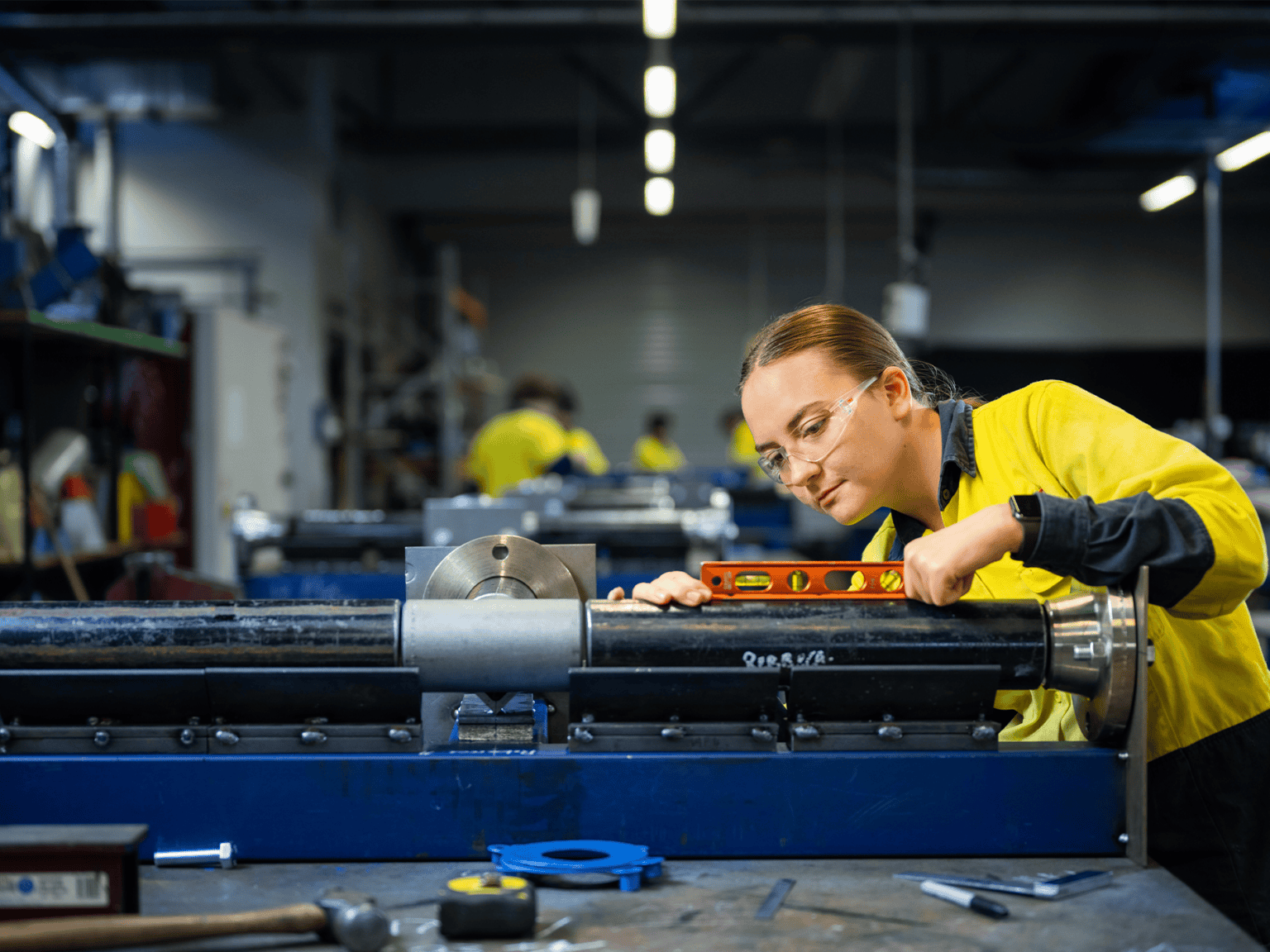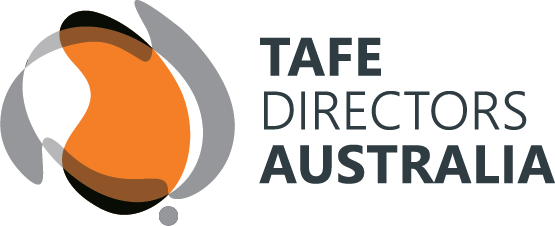TAFE SA and defence giant build young shipbuilders’ skills

August 2023
With three decades of experience in working successfully with the naval shipbuilding industry, TAFE SA are well positioned to lend their expertise in helping their industry partners drive recruitment and training opportunities.
Working together with defence and security company, BAE Systems Australia (BAESA), a new, innovative program – the Shipbuilding Readiness Program – was developed to equip young people with the skills needed to work in shipbuilding.
This program was brought about in 2019, when the Hunter Class Frigate Program was in its infancy and the workforce was still growing and preparing to begin prototyping work. There was limited opportunity in the shipyard to offer traditional apprenticeships, so TAFE SA and BAESA worked collaboratively to develop alternative options to engage young people.
The Shipbuilding Readiness Program allows school-based trainees and apprentices the flexibility to achieve engineering qualifications by learning at school, TAFE SA and onsite at the Osborne Naval Shipyard.

Shared values of supporting individuals
“It’s a joy working with BAE Systems Australia because they’re committed to students with different learning and workplace requirements. BAE Systems Australia’s goal is to see every apprentice be successful, in whatever way that means to that person.”
Julie Pisano, Director, Academic Development, Strategic Industry Partnerships, TAFE SA
“TAFE SA are reputable; they understand the school system and have the services to support students throughout their studies. The retention rate for our school-based apprentices and trainees is 70%, well above the national average for apprentices of around 50%.
Individualised training is something we’ve worked with TAFE SA to build in order to offer individuals skilling that’s suitable to their needs, as well as supporting our diversity and inclusion framework.”Ashleigh Bryans, Program Lead – Early Careers, BAE Systems Australia – Maritime
Investing in relationships
Formalities like an MOU, quarterly forward planning sessions and regular site visits provide a necessary framework for the collaboration. But success lies in the effort spent building relationships.
“It takes time to set up, things feel slow. Are we wasting time? No, we’re building relationships for a bigger picture. It’s an investment in longevity and successful outcomes for students. This is one of the strongest industry relationships I’ve ever had.
Our TAFE SA staff do training and assessment in the shipyard, exposed to state-of-the-art technology and work practices. We’re looking at succession planning and mentoring of our staff now, to match BAE Systems Australia’s future needs. We want BAE Systems Australia to have the same level of confidence in our future, as they have now.”Julie Pisano, Director, Academic Development, Strategic Industry Partnerships, TAFE SA
“We really respect and understand each other’s needs. We’re ramping up our recruitment within the next six to twelve months in both trade and non-trade areas. TAFE SA can assist us with talent as we head into the next phase of the Hunter Class Frigate Program. We know the importance of upskilling ourselves about vocational education, so we can have informed conversations that articulate our needs, and what outcomes need to be derived from the learning. The strength of our relationship has allowed us to work together collaboratively and, at times, challenge each other’s thinking so we’re able to deliver the best solutions and outcomes.”
Ashleigh Bryans, Program Lead – Early Careers, BAE Systems Australia – Maritime
TAFE SA is positioning itself for many more opportunities to work successfully with BAESA into the future, and it’s the start of a long and deep skills development journey for BAESA. Training for their naval shipbuilding projects will go on for decades, with the construction of the Hunter class frigates.


